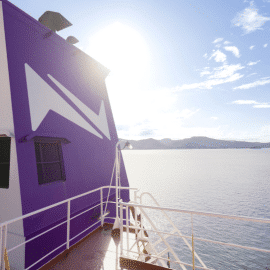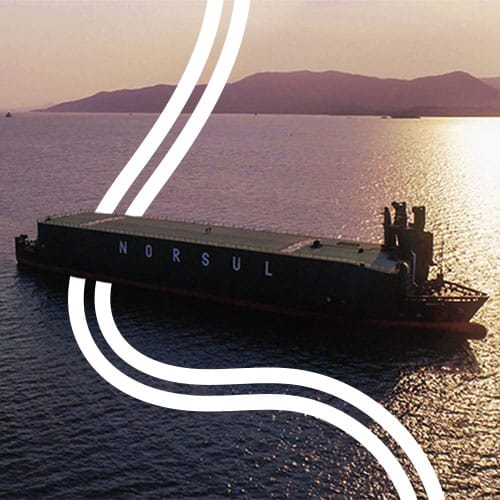
To optimize the energy efficiency of its vessels, Norsul is investing in pioneering technology in commercial navigation. With Propeller Boss Cap Fin (PBCF), it is possible to improve the ship’s energy efficiency. The company was the first to test the device on a bulk vessel in the country. In parallel, Norsul also develops a special painting plan, which decreases the resistance in the advance of the ship in the water and reduces fuel consumption.
“One of Norsul’s pillars is sustainability, and through our Norsul Neutral Carbon program, we have neutralized all our emissions in cargo transportation since 2020. The next goal is to zero CO2 emissions by 2050. Therefore, we are always working on innovation projects seeking fuel economy, combined with reducing the impact on the environment, “explains Leonardo Brum, Executive Fleet Manager at Norsul.
Special Painting Plan
Here an antifouling paint is used, which is manufactured by melting the active silicone hydrogel with a small percentage of biocide. With it, the ship’s hull offers less friction and, consequently, less resistance to advancement. This increases energy efficiency and decreases fossil fuel consumption. Thus, the initiative that is pioneering in Brazil within commercial navigation, reduces the energy consumption of vessels.
“The expectation is to improve the efficiency in the performance of the ship by almost 10% compared to the average of antifouling in the market, and also to reduce CO2 emissions by about one thousand tons per year,” points out Brum.
Propeller Boss Cap Fin
In this project of the organization, what happens is the exchange of a part of the propeller hub to reduce or eliminate the vortex caused at the posterior end of the ship’s system. The initiative improves thruster performance and optimizes the power applied to the navigation software. This results in savings of up to 5% in fuel consumption and, respectively, in the reduction of CO2 emissions.
The technology was first implemented on the ship Pio Grande. During the tests, Norsul calculated that it stopped consuming 207 tons of fuel oil on the vessel. This saving resulted in an 800-tonne reduction in consumption for cargo transportation. With this, the company anticipates the new regulations of gas emissions that accentuate the greenhouse effect. In addition, it takes care of socio-environmental impacts and ensures the longevity of its operations in a sustainable way. Now, the PBCF will be applied to other vessels in the fleet, with Juruti being the next to receive the technology.
“We take sustainability very seriously and want to go further, working on projects that shape the legacy that, as a company, we want to leave to the world. So much so that we follow the commitment to sustainability also in the onshore operations that we started in 2020, “concludes Leonardo.

